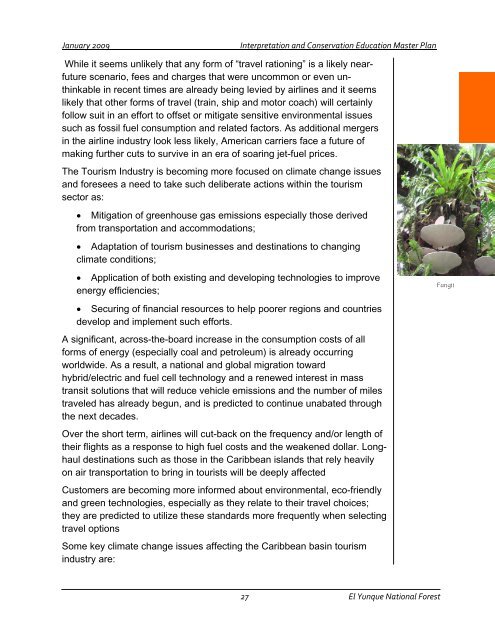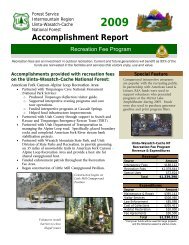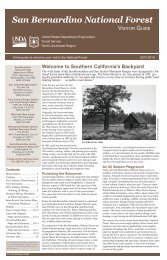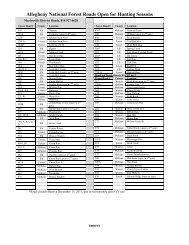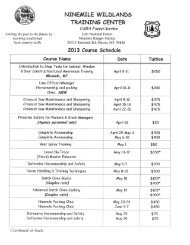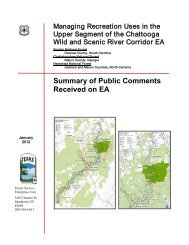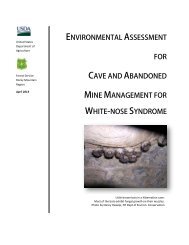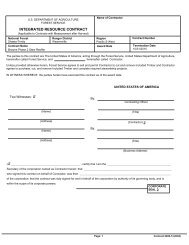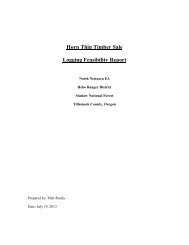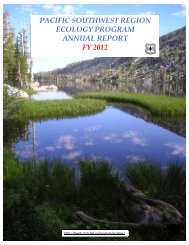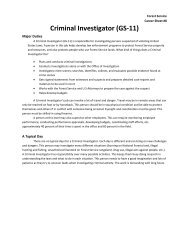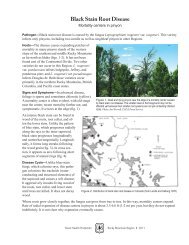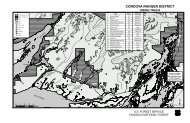2009 - USDA Forest Service
2009 - USDA Forest Service
2009 - USDA Forest Service
Create successful ePaper yourself
Turn your PDF publications into a flip-book with our unique Google optimized e-Paper software.
January <strong>2009</strong> Interpretation and Conservation Education Master Plan<br />
While it seems unlikely that any form of “travel rationing” is a likely nearfuture<br />
scenario, fees and charges that were uncommon or even unthinkable<br />
in recent times are already being levied by airlines and it seems<br />
likely that other forms of travel (train, ship and motor coach) will certainly<br />
follow suit in an effort to offset or mitigate sensitive environmental issues<br />
such as fossil fuel consumption and related factors. As additional mergers<br />
in the airline industry look less likely, American carriers face a future of<br />
making further cuts to survive in an era of soaring jet-fuel prices.<br />
The Tourism Industry is becoming more focused on climate change issues<br />
and foresees a need to take such deliberate actions within the tourism<br />
sector as:<br />
• Mitigation of greenhouse gas emissions especially those derived<br />
from transportation and accommodations;<br />
• Adaptation of tourism businesses and destinations to changing<br />
climate conditions;<br />
• Application of both existing and developing technologies to improve<br />
energy efficiencies;<br />
• Securing of financial resources to help poorer regions and countries<br />
develop and implement such efforts.<br />
A significant, across-the-board increase in the consumption costs of all<br />
forms of energy (especially coal and petroleum) is already occurring<br />
worldwide. As a result, a national and global migration toward<br />
hybrid/electric and fuel cell technology and a renewed interest in mass<br />
transit solutions that will reduce vehicle emissions and the number of miles<br />
traveled has already begun, and is predicted to continue unabated through<br />
the next decades.<br />
Over the short term, airlines will cut-back on the frequency and/or length of<br />
their flights as a response to high fuel costs and the weakened dollar. Longhaul<br />
destinations such as those in the Caribbean islands that rely heavily<br />
on air transportation to bring in tourists will be deeply affected<br />
Customers are becoming more informed about environmental, eco-friendly<br />
and green technologies, especially as they relate to their travel choices;<br />
they are predicted to utilize these standards more frequently when selecting<br />
travel options<br />
Some key climate change issues affecting the Caribbean basin tourism<br />
industry are:<br />
27 El Yunque National <strong>Forest</strong><br />
Fungii


